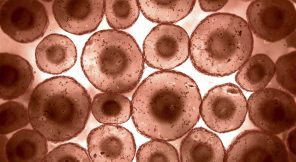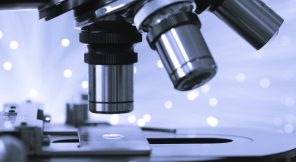Fluorescent Multiplex Cell Flow Chamber Assay
Simultaneous real-time capture of fluorescence images from eight cell specimens in a parallel plate flow chamber

Technology Summary
KAUST has developed a real-time fluorescent multiplex cell flow (FMCF) chamber assay to capture and visualize cell rolling, cell adhesion and other assays related to cell homing in real-time. The technology can process up to eight or more different treatment conditions at one time, making it highly efficient and cost effective compared to traditional parallel plate flow chambers that run only one cell type.
This new technology addresses the low throughput challenge facing cell homing strategies employed in various cell-based therapy research and can be employed in a competitive endothelial cell layer to mimic physiological conditions.
The innovative multiplexing technique employs differential fluorescent cell labeling to provide a unique identify to each cell type within a mixture. Each cell type or treatment condition is labeled with one or more conjugated antibodies. The flow experiment is imaged at one frame per 400-milliseconds using a spectral confocal laser scanning system connected to a computer.
How It Works
The KAUST FMCF Chamber Assay (above right) can test and automatically track and analyze eight or more different cell species at one time using a standard confocal imaging system and delivering an easily interpreted result for rapid analysis. Standard light microscope-based techniques (above left) can only process one specimen at a time and require manual tracking.
IP Protection
KAUST has a patent pending for this technology.
Invention Track Code
2015-33

Benefits
- Fast: More than 8x faster than single sample parallel flow plates
- Efficient: Avoids inter-experimental variations, eliminates need for normalization and allows for internal replication in the same flow run
- Cost Effective: Multiple specimens per sample reduce material costs
- Simple: Automatic tracking and analysis compatible with traditional confocal scanning systems

Applications
- Clinical translation of exogenous cell-based therapies
- Multiple conditions testing of cell-rolling
- Cell adhesion studies
- Chemotaxis studies
- Transmigration studies

